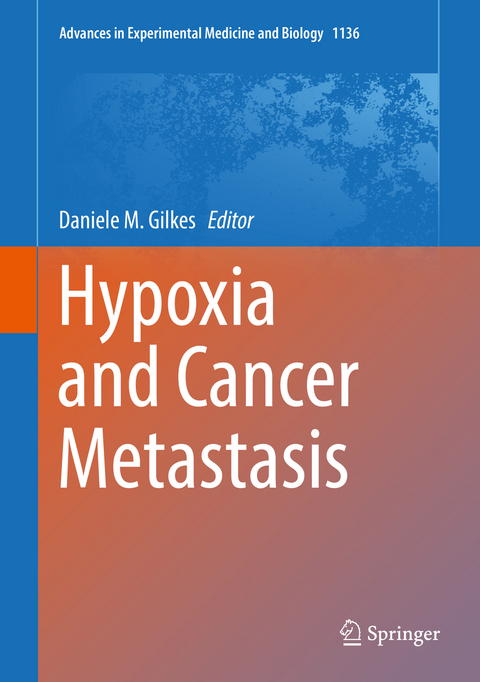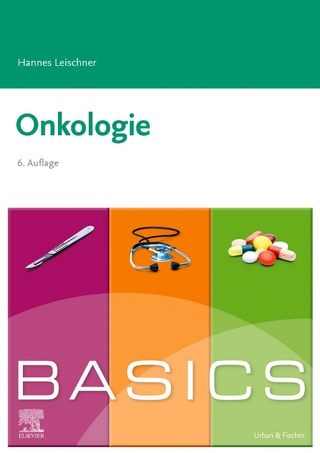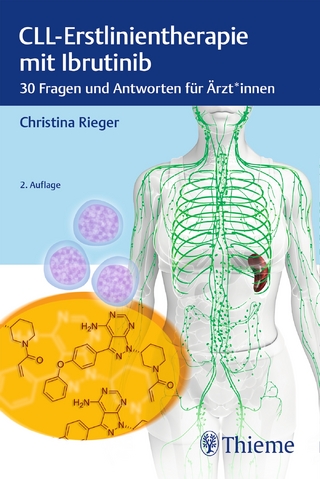
Hypoxia and Cancer Metastasis
Springer International Publishing (Verlag)
978-3-030-12733-6 (ISBN)
The present book is an attempt to provide a detailed review of studies that clarify our current understanding of the role of hypoxia in the progression of primary cancer to metastatic disease. It will enable researchers to discover the critical cellular changes that occur under hypoxic conditions and play a role in metastatic dissemination, from the activation of hypoxia-inducible factors, HIF-1 and HIF-2, to the transcriptional profile changes that occur in cancer cells and promote cancer cell survival under detrimental conditions.
Readers will discover the methods and challenges involved in imaging and quantifying the degree of hypoxia in a primary tumor. We will provide an understanding of the hypoxia-induced phenotypes that influence heterogeneity, alter the secretome and tumor microenvironment, modify cellular metabolism, and promote immune suppression and resistance to chemotherapy. Finally, we will uncover the therapeutic strategies that are being devised to target the hypoxic microenvironment in the hopes of preventing metastasis and improving the efficacy of standard-of-care cancer treatments.This work is an up to date source of information on the challenges and complexity of the hypoxic tumor microenvironment. Basic and translational scientists, post-doctoral fellows, graduate students, and those interested in how tumors metastasize will find this book a reference that details how hypoxia influences metastatic disease.
Assistant Professor of Oncology Assistant Professor Chemical and Molecular Engineering Johns Hopkins University School of Medicine Baltimore, Maryland Jayne Koskinas Ted Giovanis Foundation for Health and Policy Partnership Daniele Gilkes earned her MS in engineering from the University of Florida and her PhD in cancer biology from the University of South Florida. She is currently an assistant professor in the departments of Oncology as well as Chemical and Molecular Engineering at the Johns Hopkins University School of Medicine. Her research goal is to develop a breast cancer research program which utilizes new technologies that can rapidly advance our understanding of how the microenvironment, in particular hypoxia and hypoxia-induced genetic changes, promote breast cancer metastasis. The overall objective is to identify therapeutic strategies that focus on metastasis treatment and prevention strategies for breast cancer patients.
Preface.- Hypoxia mediates tumor malignancy.- Clinical methods for quanitifying hypoxia in human tumors.- Hypoxia-induced phenotypes that mediate tumor heterogeneity.- Hypoxia and the tumors secretome.- Hypoxic signaling in angiogenesis and lymphangiogenesis.- Hypoxia induced metabolic reprogramming in cancer metastasis.- The metastatic niche and hypoxia.- Hypoxia and immune suppression.- Hypoxia-induced resistance to cancer therapy.- Therapeutic stratagies to target the hypoxic microenvironment.- Index.
| Erscheinungsdatum | 29.06.2019 |
|---|---|
| Reihe/Serie | Advances in Experimental Medicine and Biology |
| Zusatzinfo | VIII, 160 p. 17 illus., 16 illus. in color. |
| Verlagsort | Cham |
| Sprache | englisch |
| Maße | 178 x 254 mm |
| Gewicht | 507 g |
| Themenwelt | Medizin / Pharmazie ► Medizinische Fachgebiete ► Onkologie |
| Medizin / Pharmazie ► Studium | |
| Schlagworte | angiogenesis • Cancer • HIF • Hypoxia • Metastasis |
| ISBN-10 | 3-030-12733-8 / 3030127338 |
| ISBN-13 | 978-3-030-12733-6 / 9783030127336 |
| Zustand | Neuware |
| Informationen gemäß Produktsicherheitsverordnung (GPSR) | |
| Haben Sie eine Frage zum Produkt? |
aus dem Bereich


